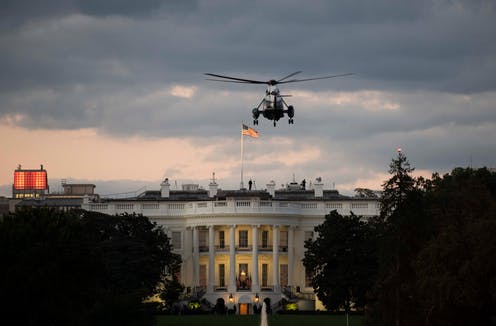The White House confirmed President Donald Trump will announce new tariffs on Wednesday, with a 25% duty on auto imports taking effect April 3 and immediate reciprocal tariffs on countries taxing U.S. goods. Though details remain uncertain, the move could reshape global trade and impact markets significantly.
Dubbed "Liberation Day," April 2 marks Trump’s latest push to counter what he sees as unfair trade practices. According to Treasury Secretary Scott Bessent, the tariffs will act as a cap and could be reduced if other nations meet U.S. demands. Aides have floated ideas ranging from a universal 20% tariff to more targeted measures, potentially raising over $6 trillion in revenue, possibly redistributed to Americans.
Past tariff threats were often delayed, but this time the administration appears firm. White House spokeswoman Karoline Leavitt emphasized the president’s commitment to restoring America’s economic strength. However, the business community, consumers, and investors remain wary. Economists warn these tariffs could slow growth, increase prices, and trigger stagflation.
U.S. manufacturing activity has already contracted, and investor confidence has faltered, with $5 trillion wiped from U.S. stock markets since mid-February. A recent Federal Reserve Bank of Atlanta survey revealed rising costs and declining hiring plans among businesses due to tariff fears.
Global reaction has been swift. Canada and Mexico vowed retaliation, while other nations seek negotiations to avoid being targeted. A "Buy Canadian" movement is already hurting U.S. exports.
Trump argues the $1.2 trillion goods trade deficit and flood of imports are undermining American industry. Yet economists caution that sweeping tariffs could do more harm than good, potentially sparking a global economic downturn while costing U.S. households an estimated $3,400 annually.
Investors and global leaders now await Trump’s formal announcement with apprehension.



 South Korea Assures U.S. on Trade Deal Commitments Amid Tariff Concerns
South Korea Assures U.S. on Trade Deal Commitments Amid Tariff Concerns  Trump’s Inflation Claims Clash With Voters’ Cost-of-Living Reality
Trump’s Inflation Claims Clash With Voters’ Cost-of-Living Reality  Trump Allows Commercial Fishing in Protected New England Waters
Trump Allows Commercial Fishing in Protected New England Waters  South Korea’s Weak Won Struggles as Retail Investors Pour Money Into U.S. Stocks
South Korea’s Weak Won Struggles as Retail Investors Pour Money Into U.S. Stocks  Thailand Inflation Remains Negative for 10th Straight Month in January
Thailand Inflation Remains Negative for 10th Straight Month in January  Nighttime Shelling Causes Serious Damage in Russia’s Belgorod Region Near Ukraine Border
Nighttime Shelling Causes Serious Damage in Russia’s Belgorod Region Near Ukraine Border  India–U.S. Interim Trade Pact Cuts Auto Tariffs but Leaves Tesla Out
India–U.S. Interim Trade Pact Cuts Auto Tariffs but Leaves Tesla Out  Trump Endorses Japan’s Sanae Takaichi Ahead of Crucial Election Amid Market and China Tensions
Trump Endorses Japan’s Sanae Takaichi Ahead of Crucial Election Amid Market and China Tensions  Dollar Steadies Ahead of ECB and BoE Decisions as Markets Turn Risk-Off
Dollar Steadies Ahead of ECB and BoE Decisions as Markets Turn Risk-Off  Trump Lifts 25% Tariff on Indian Goods in Strategic U.S.–India Trade and Energy Deal
Trump Lifts 25% Tariff on Indian Goods in Strategic U.S.–India Trade and Energy Deal  Jack Lang Resigns as Head of Arab World Institute Amid Epstein Controversy
Jack Lang Resigns as Head of Arab World Institute Amid Epstein Controversy  Norway Opens Corruption Probe Into Former PM and Nobel Committee Chair Thorbjoern Jagland Over Epstein Links
Norway Opens Corruption Probe Into Former PM and Nobel Committee Chair Thorbjoern Jagland Over Epstein Links  China Warns US Arms Sales to Taiwan Could Disrupt Trump’s Planned Visit
China Warns US Arms Sales to Taiwan Could Disrupt Trump’s Planned Visit  Japanese Pharmaceutical Stocks Slide as TrumpRx.gov Launch Sparks Market Concerns
Japanese Pharmaceutical Stocks Slide as TrumpRx.gov Launch Sparks Market Concerns  U.S.-India Trade Framework Signals Major Shift in Tariffs, Energy, and Supply Chains
U.S.-India Trade Framework Signals Major Shift in Tariffs, Energy, and Supply Chains  Trump Signs Executive Order Threatening 25% Tariffs on Countries Trading With Iran
Trump Signs Executive Order Threatening 25% Tariffs on Countries Trading With Iran  US Pushes Ukraine-Russia Peace Talks Before Summer Amid Escalating Attacks
US Pushes Ukraine-Russia Peace Talks Before Summer Amid Escalating Attacks 































